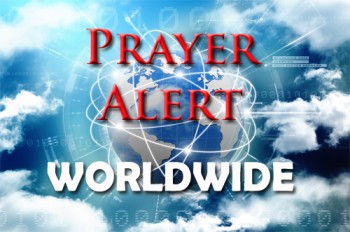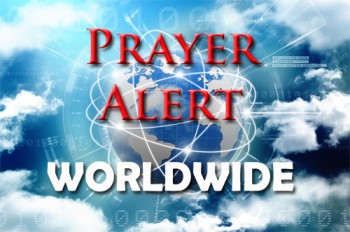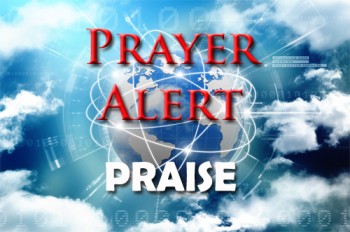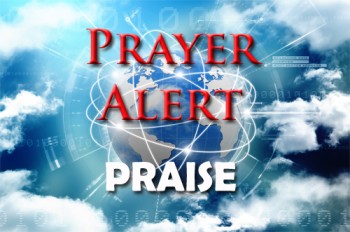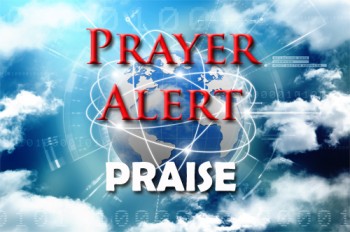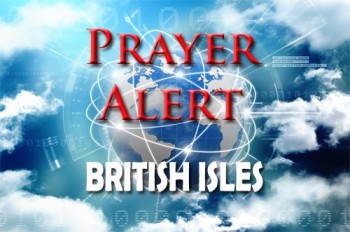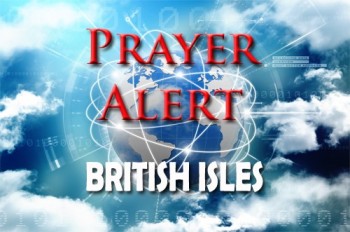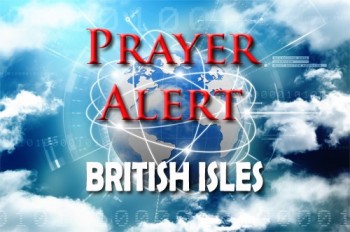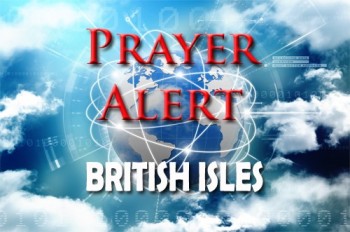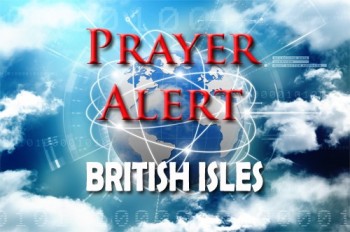
David Fletcher
David Fletcher is Prayer Alert’s Editor.
He is part of a voluntary team who research, proof-read and publish Prayer Alert each week.
If you would like to make a donation towards our running costs, please click here.
The head of Amnesty International said China has created a ‘dystopian hellscape’ for people detained in Xinjiang camps, who are routinely tortured. A report based on 50+ former detainees details crimes against humanity - including mass imprisonment, torture and persecution - carried out by Chinese authorities against Uyghur Muslims and other ethnic minorities. The secretary general of Amnesty said, ‘China must immediately dismantle the internment camps, release the people arbitrarily detained in them and in prisons, and end the systematic attacks against Muslims in Xinjiang.’ Since 2017 hundreds of thousands - and possibly more than one million people - have been sent to camps in Xinjiang. China for a long time denied the existence of any camps. It eventually changed tack and now says the camps are voluntary ‘vocational training centres’, necessary to combat terrorism. President Xi Jinping said his government's policies in the region are ‘totally correct’.
On 10 June a bipartisan group of members of the US Congress launched a caucus against foreign corruption and kleptocracy at a virtual kickoff event. The new caucus will focus on fighting global corruption and kleptocracy (authoritarian governance model in which foreign officials use corruption to maintain their power and grow their influence in countries). Transparency International said this caucus is a clear recognition of the importance of combating global corruption by leaders, which has increased since the pandemic. Corruption, including stolen and misappropriated relief funding, harsh crackdowns on pandemic reporting in the media, and attempts to appropriate or dismantle democratic and rule-of-law institutions, robs all those in need of urgent aid.
11-year-old Chan-Rey always wondered who created the whole world. Her mother didn’t know, so she kept searching for an answer. One Sunday a girl invited her to church. The Sunday school class was watching the Superbook episode ‘In the beginning’, about the creation of the world. ‘The story was AMAZING!’ she declared. ‘I saw the Spirit of God flying around. He said, “Let there be light”, and there was light! Then He made the world. It looked so beautiful. Then He created a man from dust and let them take care of everything!’ After watching the episode, Chan-Rey prayed with the teacher to become a Christian. She couldn’t wait to tell her family about what happened. ‘I shared the gospel with my parents and sisters. Then I brought them to church. Now they believe in Jesus too!’
The Queen was ‘delighted’ after Harry and Meghan announced the birth of their second child, Lilibet ‘Lili’ Diana Mountbatten-Windsor. Lilibet is a very intimate name that the Queen has used since she was very little and her sister could not pronounce her name properly. Many believe this is a diplomatic olive branch offered to the royal family after what has been a fractious year between Harry and Meghan and the rest of the royals. Lilibet was born in a California hospital, weighing 7 lbs 11oz.
Israel: God’s chosen people in Scripture, the very bloodline of Jesus Christ: yet most Jews in Israel still wait for the Messiah, not realising or recognising that Jesus already came to save them. But the Holy Spirit is moving. A growing number of Jews are recognising Jesus as their Saviour, and Arabs in Israel are also turning to Christ. In fact, following the recent violence, Arab and Jewish Christians gathered at the Gaza fence to pray together!
Some schools became hotbeds of anti-Israel sentiment during the conflict between Israel and Hamas. Students staged a number of demonstrations. Angry protesters gathered outside a Leeds school to support anti-semitism when the headteacher called the Palestinian flag a ‘call to arms’. During a protest at Clapton Girls’ Academy students sat down and chanted, ‘Free Palestine’, refusing to return to lessons. They did so after teachers removed posters about the Palestinian struggle from the walls of the schools. A north London school removed images of the Palestinian flag from school noticeboards, and told parents that schools were ‘apolitical organisations’ and ‘not to use political messaging to a captive audience’. Manchester’s Loreto College closed after hearing of planned demonstrations. A Jewish teacher in a non-Jewish school was bullied by students and resigned. Twenty-five teachers from a Jewish school quit their trade union to protest against its call for participation in pro-Palestinian rallies.
A 2017 survey found that very few practising Christians decided to become Christians during adulthood. The UK is becoming more secular, with churches declining and fewer believers. As a nation we are losing our Biblical foundation, and our culture is paying the heavy price of change. Many people have a false impression about what the Bible says because they have never actually read it for themselves. The survey defined 'practising Christians' as people who read or listen to the Bible at least once a week, pray at least once a week, and attend a church service at least once a month. The Pocket Testament League is full of Christians who have committed to reading the Word of God, carrying the Word with them wherever they go, and sharing the Word with others. They ask, ‘How will our friends and neighbours ever know about the transformative power of Jesus unless we share the Word of God with them?’ Like-minded Christians are invited to join them in sharing the Word and fulfilling the Great Commission.
In November Christian Concern and the Christian Schools’ Trust are jointly hosting another online conference, with free follow-up networking events, for Christians in education. In C S Lewis’ The Last Battle, the call to come ‘further up and further in’ is made to those on the cusp of a great new adventure. Those in education with a distinctively Christian vision will be stirred through these events, to ‘go deeper’ into His plans for them personally and for those they educate. Over 300 teachers and educationalists joined the previous online conference in February. The organisers are inviting all Christians in education to be part of this growing movement, seeking to be distinctively Christian in schools across the UK and beyond: being encouraged, envisioned, and equipped to serve the Lord in their schools, and to meet and network with other Christian teachers in the same key stage or subject.
Boris Johnson and Joe Biden met on 10 June. Joe Biden has Irish roots, and many believe Britain should not underestimate the strength of his feelings against tinkering with the Northern Ireland Protocol if it puts the Good Friday agreement in jeopardy. Boris Johnson wants to ‘tinker’, putting the agreement at risk. He was seen by many Americans as Britain's equivalent of Donald Trump, and indeed he was lavish in his praise of the former president. But British PMs need to get on with whoever is America’s president. Boris, from a privileged background, needs to get on with Joe, who is from a poor working-class background. The one thing the two men do have in common is that they both are Catholics: one is a practising believer, the other needs more practice.
The UK and the EU are in disagreement over the Northern Ireland Protocol; one sticking point is the export of sausages from the UK. Maros Sefcovic, the European Commission vice-president, says there have been ‘numerous and fundamental gaps’ in the UK's implementation of the trade deal and the EU will act ‘firmly’ if the UK does not agree on deadlines for complying with its obligations. Environment secretary George Eustice claimed the Northern Ireland Protocol, and the way the EU wants to implement it, make it impossible for UK producers to sell British sausages to Northern Ireland. Boris Johnson's spokesman said there was ‘no case whatsoever’ for blocking the sale of chilled meats. The UK has also accused the EU of failing to engage with its own proposals, especially with the issues pertaining to people in Northern Ireland.

